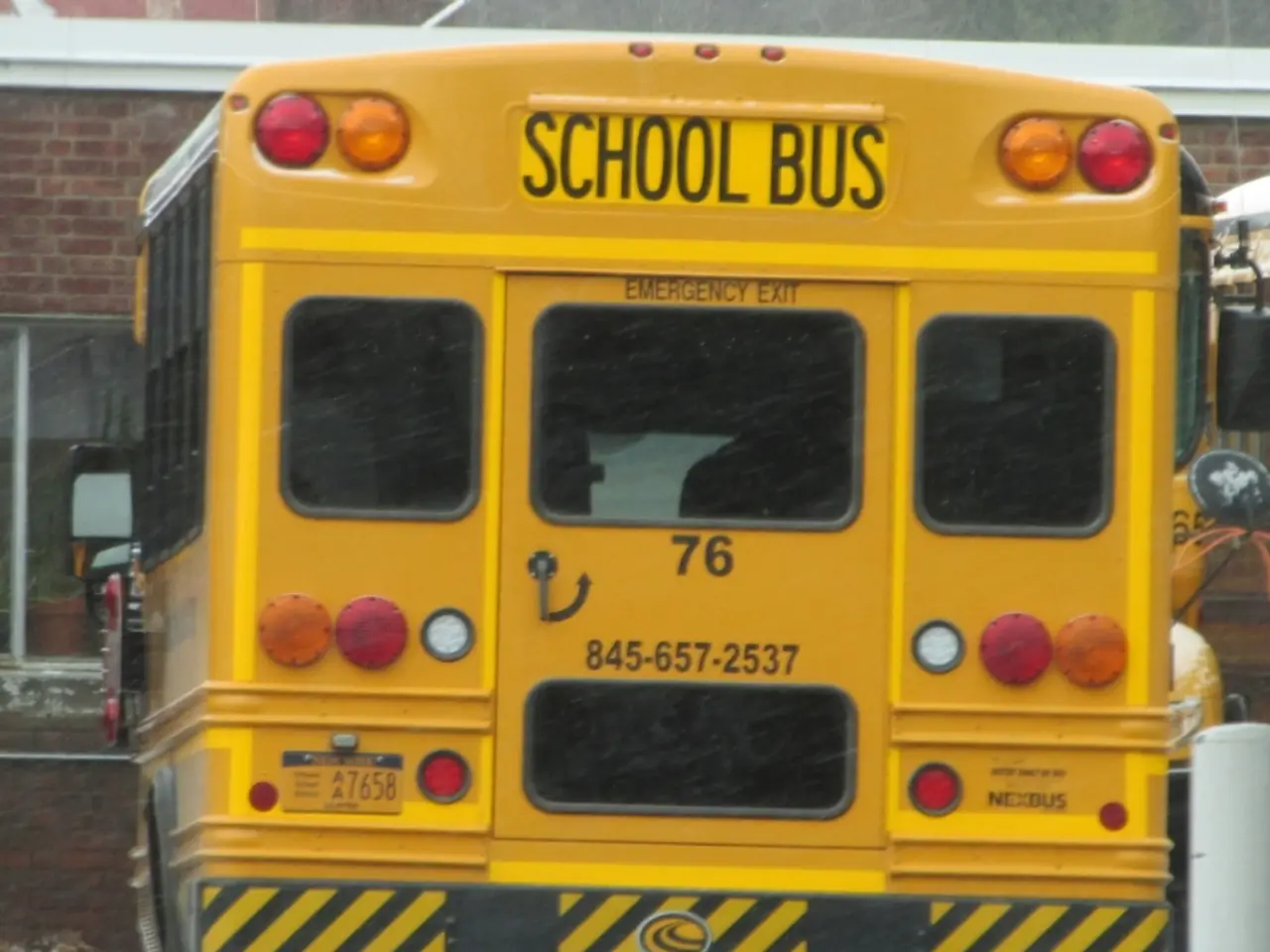Living Without Legal Documentation: The Struggle of Raising Children as an Undocumented Parent in America
## Struggles of an American Family Faced with Deportation Under Trump Administration
In the heart of America, a family's future hangs in the balance as they grapple with the potential consequences of the current US immigration policies under President Donald Trump. Kimberly, a college student majoring in chemistry, finds herself worrying about the safety of her undocumented parents, who have lived under the radar in the US for over two decades.
Kimberly, her older sister, and two other sisters are US citizens, born and raised in the land of the free. However, their lives have been tinged with a constant fear of deportation, a fear that has been amplified under the current administration. Their parents, who moved to the US 22 years ago, have always been cautious about their actions and appearances, living in a small, "tent looking" structure in Mexico before making the journey north.
The family's economic contributions to the US have been substantial, with Kimberly's parents working low-paid jobs in cleaning, childcare, and construction for over two decades. Despite their undocumented status, they have paid taxes, contributing to the US economy in a silent, yet significant way. However, this has not shielded them from the fear of being swept up in an immigration raid and sent to a detention facility or deported without notice.
Kimberly's mother started working two jobs when the girls were old enough to stay alone for a few hours after school. The youngest sister was around 4 or 5 years old when her parents worked multiple jobs. The family has always been mindful of their actions, keeping a low profile to avoid drawing attention to their undocumented status.
The administration's aggressive approach to immigration has targeted not only the undocumented but also those with criminal records. This has created a climate of fear and uncertainty, with families living in constant anxiety about sudden separation, workplace raids, or financial penalties. The psychological toll is compounded by economic instability, as both immigrant and US-born workers in sectors like construction and childcare face job losses if mass deportations proceed.
Communities report increased stress, with many immigrants avoiding public spaces, healthcare, or education out of fear of encountering immigration authorities. This fear is not unfounded, as the administration has implemented a system allowing immigration officers to impose fines of up to nearly $1,000 per day for failing to depart after a deportation order. These fines, rarely enforced in previous decades, now risk pushing individuals into crushing debt on top of the trauma of deportation, magnifying fear in immigrant communities.
Kimberly is preparing for the worst, planning to move to Mexico to be with her parents if they are deported. She is grateful for her education, believing it will prepare her to provide for her parents in the future. Despite the challenges, Kimberly remains hopeful, drawing strength from the confidence she has built during her time in the US.
The human cost of these policies is profound, with fear, instability, and economic harm affecting not only individuals at risk of removal but also their families and broader communities. The administration's policies mark a significant escalation in the enforcement-first approach to immigration, with long-lasting consequences for those living under its shadow.
References:
[1] American Immigration Council. (2017). Trump Administration's Deportation Targets and Goals. Retrieved from https://www.americanimmigrationcouncil.org/research/trump-administrations-deportation-targets-and-goals
[2] American Immigration Council. (2018). Trump Administration's Financial Penalties for Non-Departure. Retrieved from https://www.americanimmigrationcouncil.org/research/trump-administrations-financial-penalties-non-departure
[3] SCOTUSblog. (2019). Supreme Court allows DHS to deport certain immigrants to third countries. Retrieved from https://www.scotusblog.com/case-files/cases/sessions-v-dimaya/
- Despite being born and raised as Americans, Kimberly and her sisters face the constant fear of their parents' potential deportation under the current US administration, a fear that stems from living with undocumented status for over two decades.
- Kimberly's family, who have made substantial economic contributions to the US through their low-paid jobs in cleaning, childcare, and construction, are increasingly worried about being swept up in an immigration raid, facing detention or deportation without notice.
- The Trump Administration's aggressive immigration policies have created not only a climate of fear and uncertainty but also a shifting landscape in education and self-development, politics, general news, and the Americas, as families like Kimberly's navigate the potential consequences of these policies on their world.




